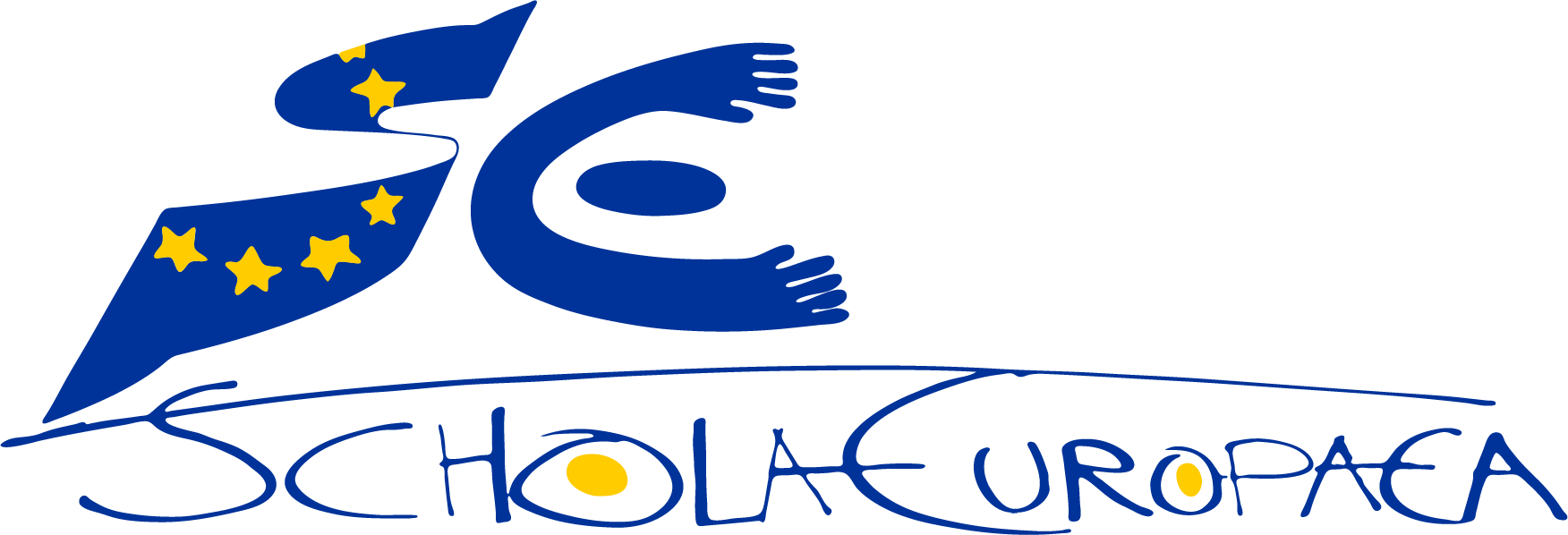Site blog
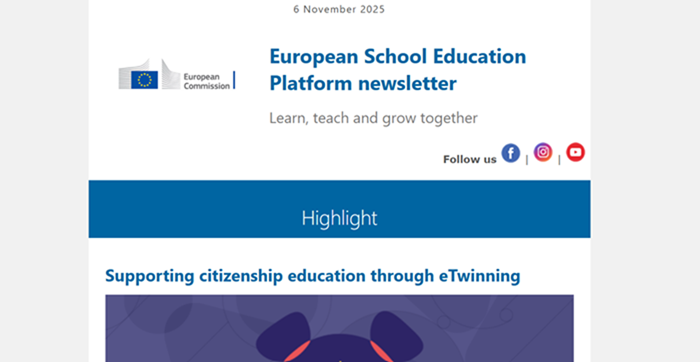
You can find the latest ESEP Newsletter here:
European School Education Platform newsletter - November 2025
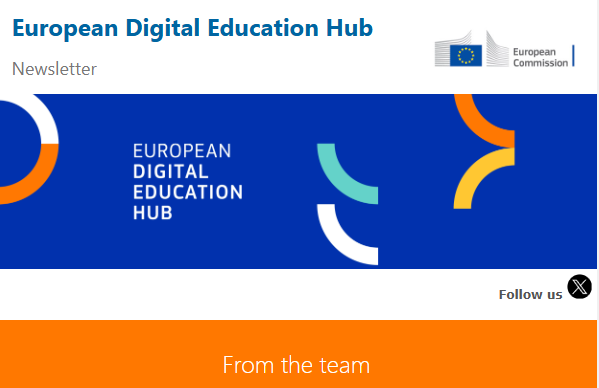
You can find the latest EDEHub Newsletter here:
European Digital Education Hub newsletter - September 2025
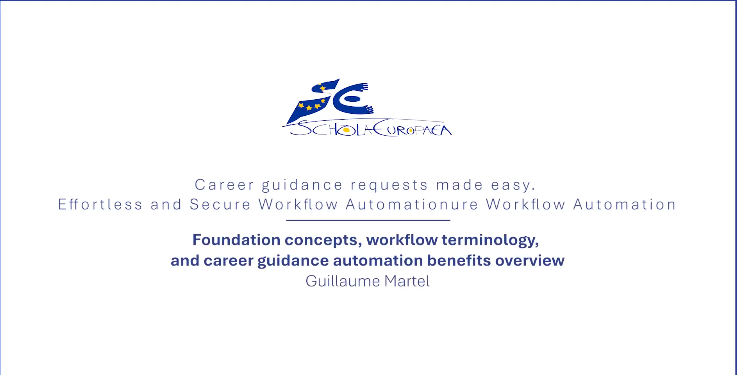
We are delighted to invite you to a series of webinars (preparation, demonstration, hands-on implementation), to empower you to:
- Discover how to automate career guidance workflows using Microsoft Power Automate and Microsoft Forms.
- Build customizable workflows tailored to your organization’s specific needs.
- Gain practical skills in creating dynamic forms, conditional logic, multi-recipient routing, and troubleshooting common issues.
- Optimize your processes through live demonstrations and interactive workshops.
📋 Requirements
- Software Access: Microsoft 365 Business/Enterprise license, Power Automate, and Microsoft Forms.
All these apps are accessible with a regular @teacher.eursc.eu account
- Prerequisites: Basic familiarity with Microsoft 365, completion of Part #0 preparation materials, stable internet connection, and willingness to participate in hands-on exercises.
🎓Learning Outcomes
By the end of the webinar, you will be able to:
- Design and deploy automated career guidance workflows.
- Customize forms and workflows to meet organizational needs.
- Integrate multiple Microsoft 365 services for seamless data flow.
- Troubleshoot common issues and apply best practices.
-
Understand the GDPR requirements and preliminary work to be achieved with the school DPO
📅 When? Tuesday, 14 October 2025 - 16:30 - 18:00 CET (Part 1) and Tuesday, 18 November 2025 - 16:30 - 18:00 CET (Part 2)
📍 Where? Online 📌 Register Now
- Oct, 14th, 2025. 16:30-18:00 Session 1: Demonstration & Architecture.
- Nov, 18th, 2025. 16:30-18:00 Session 2: Hands-on & Implementation.
🕒 Duration: 3 hours (including hands-on workshops)
🎯 Target group: Teachers across the EU (secondary), Career Counselors, HR Professionals
Presented by: G. MARTEL, European School of Mol
Introduction video
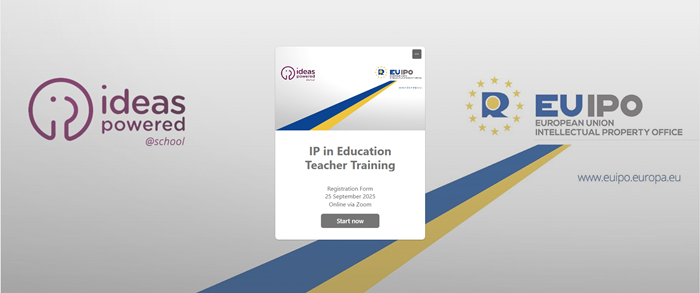
AI Literacy & Intellectual Property in Education – Online Training for Teachers
The European Union Intellectual Property Office (EUIPO) warmly invites you to join a 2-hours online training dedicated to helping teachers across Europe explore the new AI Literacy Framework and its connections with Intellectual Property (IP) in education.
The AI Literacy Framework is a joint initiative of the European Commission and the OECD, with the support of Code.org and leading international experts. It is designed for teachers, education leaders, policymakers, and learning designers, and aims to:
- Outline competences and learning scenarios for teaching about AI;
- Inform future learning materials, standards, and school-wide initiatives;
- Support the development of responsible AI policies for primary and secondary education settings.
Currently under review by international education stakeholders, the framework will be finalized in 2026.
This training, led by the EUIPO, will:
- Present the draft AI Literacy Framework in an accessible way for teachers;
- Highlight its relevance for intellectual property (IP) in education;
- Provide space for teachers to ask questions, share concerns, and exchange ideas about how AI is impacting classrooms today.
📅 When? Thursday, 25 September 2025 – 10:00–12:00 CET
📍 Where? Online – register now!
🕒 Duration: 2 hours
🎯 Target group: Teachers across the EU (primary & secondary)
Join us to gain clarity on AI in education, understand its implications for copyright and intellectual property, and prepare to guide your students confidently in the age of AI.
We look forward to welcoming you!
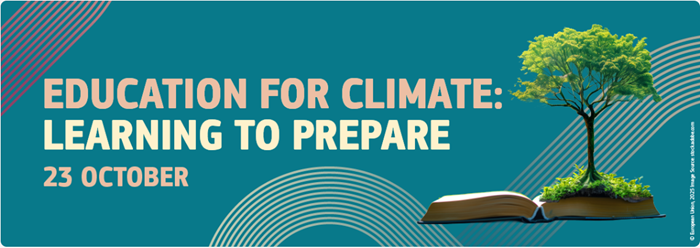
Education for Climate Day 2025 - 'Learning to Prepare'
This year, the Education for Climate Day will take place online on 23 October from 09:00 – 17:00 under the theme of 'Learning to Prepare', focusing on integrating climate resilience into classrooms, curricula, and communities. Special attention will be given to the EU Preparedness Union Strategy, exploring how its principles can inform and inspire educational approaches across Europe in the face of climate change.
The programme will feature a dynamic mix of live sessions, spotlight presentations and interactive discussions. The event will showcase real-world examples of preparedness in action and explore the role of education in EU climate strategies.
📅 When? October 23, 2025 – 09:00-17:00 CET
📍 Where? Online – register now!
🧑💻 Guest experts
-
Experts from EU Preparedness Union Strategy initiatives and educational practitioners across Europe.
-
Real-world case studies showcasing preparedness in action.
🔗 Check out the detailed: programme.
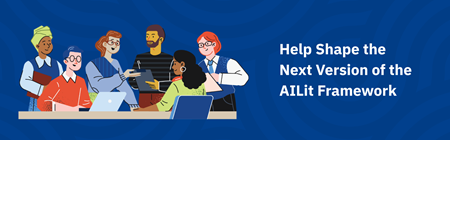
Please access the latest newsletter from TeachAI here.
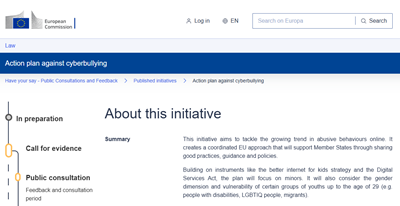
This initiative aims to tackle the growing trend in abusive behaviours online. It creates a coordinated EU approach that will support Member States through sharing good practices, guidance and policies.
The public consultation for the Action Plan against Cyberbullying runs until 29 September 2025 and is available in all EU languages. You can access it on the Have Your Say portal.
To help ensure the Plan meets children’s needs, protects their rights and reflects their lived experiences, we need to hear from children and young people themselves. This is why, the EU Children’s Participation Platform has recently launched an online survey (in all EU languages) for children and teens aged 12-17. It is available via the following link EU Survey on Cyberbullying 2025. Please spread the word!
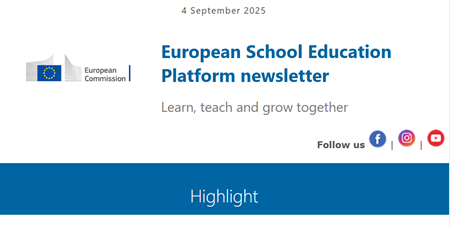
Please find the ESEP September newsletter here.
Highlights of this edition:
- Podcast: how to counter gender stereotypes in STEM
- Excellence in mathematics: a boys' affair?
- Survey on cyberbullying (until September 29th)
Courses and webinars:
- Teaching EU values in the classroom (online)
- Teaching about human rights in the classroom: practical strategies and activities (webinar)
- Self-paced learning materials:
- Using debate to build critical thinking and communication skills
- Students as designers of learning spaces
- Ethical and effective practices for AI and data in education
- Nurturing thoughtful minds through collaboration and eTwinning
- Enhance numeracy skills with eTwinning projects
- Rethinking classroom smartphone use: the kaleidoscope in your pocket
- Gender gap in basic skills: what teachers can do
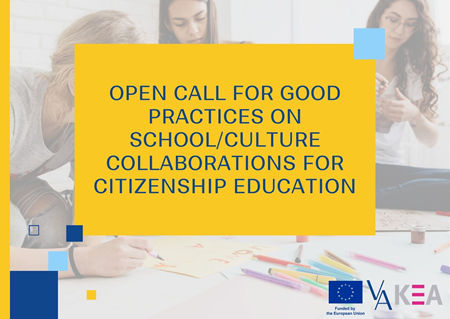
We have received the request of sharing this Open Call for Good Practices:
The European Commission has launched an Open Call for Good Practices on School/Culture Collaborations for Citizenship Education!
The European Commission is inviting you to share your good practice example of how schools can work with artists and cultural organisations to enhance pupils’ civic engagement, democratic attitudes and their readiness to engage in civic and democratic life through the power of participatory artistic and cultural experiences within and around schools.
If you have done important work of this kind, please tell us about it!
If you know other people who have done such work of high quality, please forward this request to them.
We are looking for inspirational examples of such work that was/is implemented:
- Within and around primary schools (upper years, age of pupils >10) and (especially) in secondary schools (ISCED 1-3), general or vocational.
- Within and around formal, non-formal and/or informal education environments.
👉Share your good practice example in this form by 31 October 2025.
👉Find out more about the Open Call for Good Practices here.
You can write in any of the EU-27 official languages. Please select your language under “Languages” section of the menu on the right-hand side of the screen.
Your contribution could make a difference! Good examples will inform and inspire policy and practice in the EU and world-wide.
A selection of good practice examples will feature in the Compendium of Best Practices that the European Commission will publish and disseminate widely.
This request is the first step in the European Union’s 2-year project that started in June 2025:
Culture and Democracy Study and Peer Learning
School/Culture Collaborations for Civic Engagement and Critical Citizenship Education - How schools, artists and cultural organisations can work together to enhance young people’s democratic attitudes and their readiness to engage in civic and democratic life.
The project will generate knowledge and concrete guidance for policy and practice on this topic.
It is an initiative of the European Commission’s Directorate-General for Education, Youth, Sport and Culture, implemented by its contractor Visionary Analytics in cooperation with KEA European Affairs following an open Call for Tenders.
If you have any questions, feel free to reach out at citizeneduc@visionary.lt
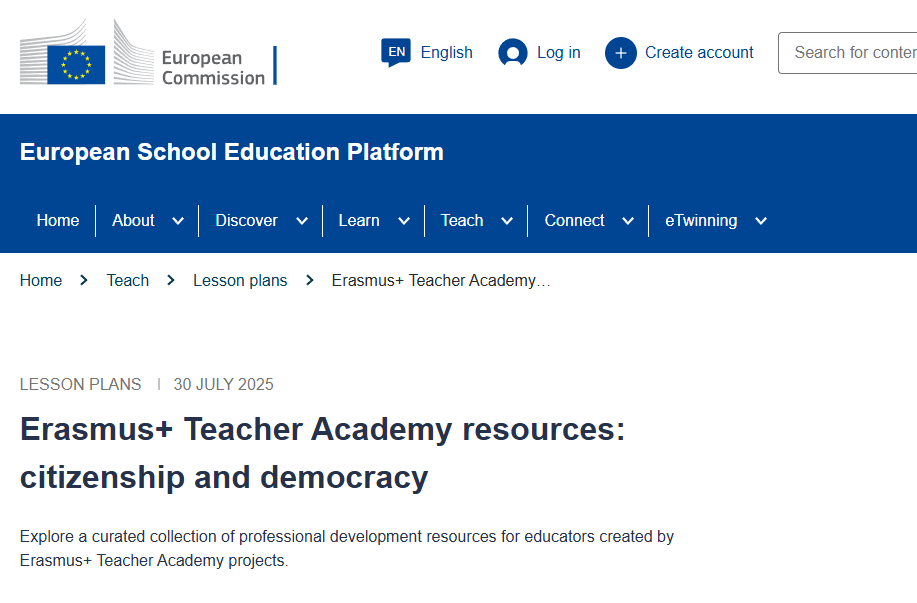
Explore a curated collection of professional development resources for educators created by Erasmus+ Teacher Academy projects.
Teacher Academies are European partnerships between teacher education institutions and training providers that aim to enhance teacher education and professional development through international collaboration, mobility and innovative methods.
The materials provided on this page come from several Teacher Academy projects. This collection will be regularly updated to include new resources from ongoing and future projects in the fields of citizenship and democracy.
- Age: 8–20+ years old
- Subjects: Citizenship and democracy
- Published by: TESTEd
- Year: 2025
- Languages available: English
